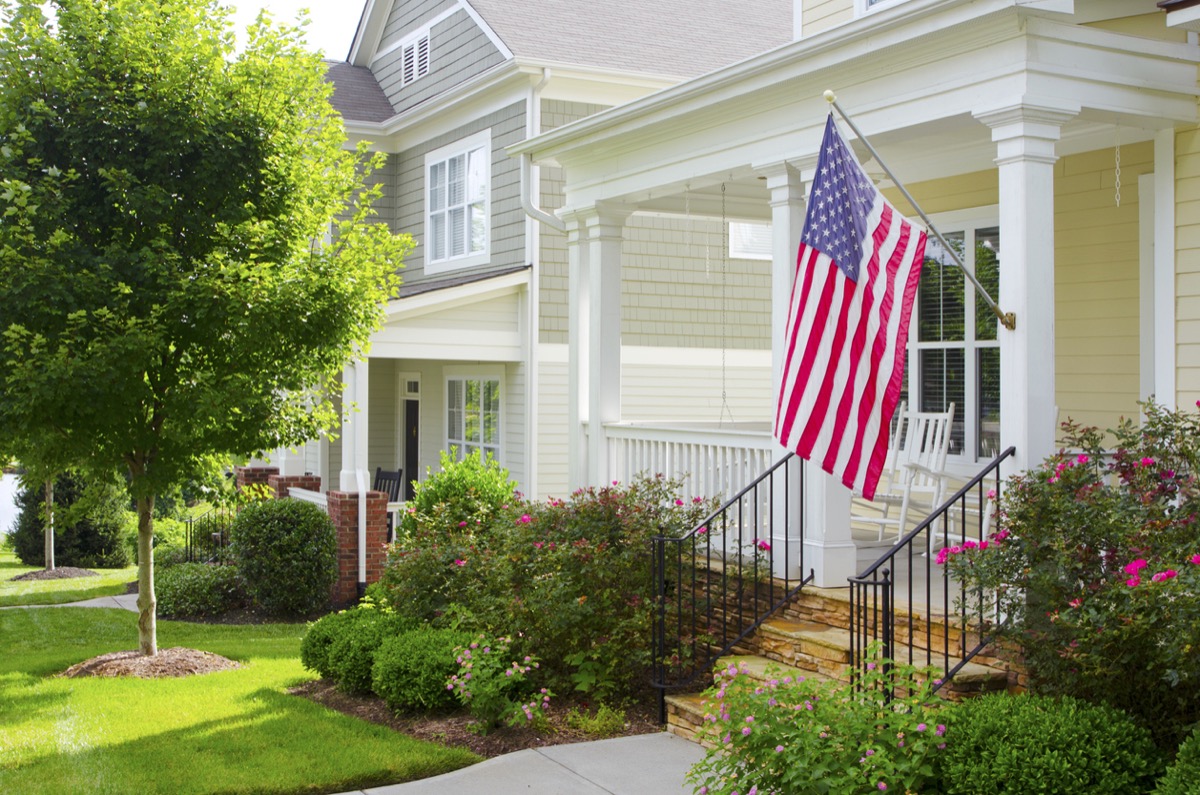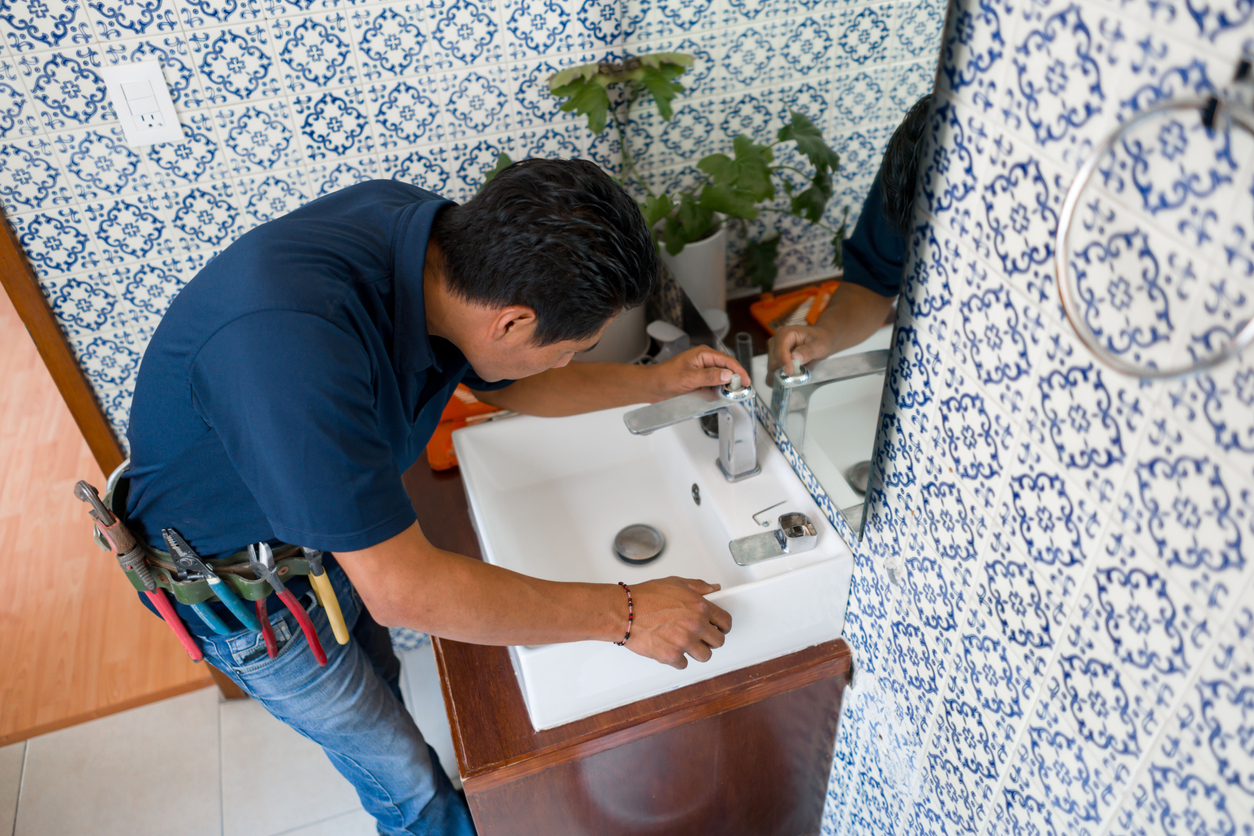10 Things You Should Stop Buying When You Retire, Finance Experts Say
Cross these off the shopping list to boost your financial freedom.

When you reach retirement, your life changes. Though you'll suddenly have more of one precious resource—time—you may find that your financial resources are stretched a bit thin compared to when you had a steady income. There are many ways to make the most of your post-retirement budget and live comfortably in this new phase of life. However, it may require curbing your spending habits strategically, financial experts say. Wondering where to begin? Read on to find out which 10 things you should stop buying when you retire, so you can start your golden years in financial freedom.
RELATED: 25 Best Ways to Save for Retirement.
1
Frequent meals in restaurants

Dining out can be a fun way to try new cuisines and connect with friends, but it can also be a pricey habit if you do it regularly. In fact, this is an especially expensive time to eat in restaurants. Inflation, staffing shortages, and new tipping norms are all driving up meal tabs, The New York Times reports.
While there's no need to cook every meal at home, cutting back on restaurant spending can help you save significantly, says Andrew Lokenauth, a money expert with Be Fluent In Finance and founder of The Finance Newsletter.
"Restaurant meals are a big expense that can quickly eat into limited retirement income. Cooking at home is significantly cheaper and healthier," he tells Best Life.
RELATED: 6 Tax Filing Tips for Retirees, According to Finance Experts.
2
New cars

You'll still need to get around in retirement, but experts say that owning more than one car or buying a new car can quickly drain your savings. Lokenauth notes that your money may go toward large car payments, higher insurance, and pricey maintenance fees.
Ian Rodda, CFO at Page One Formula, an organization specializing in helping entrepreneurs learn and grow their online business, agrees that new cars are a poor investment—especially for retirees.
"The moment a new car is driven off the lot, it depreciates significantly," he explains. "Consider opting for a well-maintained used vehicle to get the most bang for your buck, protecting your retirement savings."
RELATED: 7 Secrets That Can Help You Retire Early, According to Experts.
3
Full-priced shopping and entertainment

Seniors are often entitled to a range of benefits and discounts that can help reduce the cost of public transportation, entertainment, healthcare, and more. That's why Lokenauth recommends not spending on full-priced items and experiences any time a senior payment plan is available.
"Seek senior discounts, sign up for loyalty programs, and avoid peak times for activities," he advises.
RELATED: 5 Things You Didn't Know You Can Get for Free with Your AARP Membership.
4
Oversized homes

Several of the experts we spoke to pointed out that overspending on your housing costs can throw you into financial turmoil in retirement. For many seniors, the shift to retirement represents a good time to downsize. Lokenauth notes that this will reduce not only your monthly mortgage or rent payments, but it will also reduce expenses on utilities, property taxes, and maintenance.
RELATED: 7 House Hunting Tips If You're Over 60, According to Real Estate Experts.
5
Excessive gifts

Many older adults cap spending on themselves but throw caution to the wind when it comes to gifts—especially for their grandkids. Lokenauth suggests setting a gift budget that will allow you to be generous with the ones you love, while also retaining your financial health in retirement. "Limit excessive spending on gifts, activities, and the latest gadgets for grandkids," he says.
Your gifting should also never compromise your essential or emergency funds. If you don't have six months' worth of savings available to you for necessities, it's time to pull back on gifts.
RELATED: 6 Times You Should Never Give Money to Your Adult Children.
6
Subscription services and memberships

All too often, seniors don't realize that they're still paying for old subscription services and membership fees. This can raise your monthly costs without raising an eyebrow.
"Subscription services can quickly add up, subtly draining your resources. Undertake a subscription audit, keeping only the most essential and used services, and put the surplus back into your savings," suggests Rodda.
RELATED: The 50 Best and Worst States to Retire In, New Data Shows.
7
Luxury brand items

Next, you'll want to limit your spending on brand-name, luxury items. While all people can benefit from avoiding such excessive purchases, retirees without an active income stand to gain the most.
"In retirement, it's time to prioritize needs over wants. Curtailing expenditures on luxury items ensures that your funds last longer, paving the way for financial stability throughout retirement," Rodda says.
Ajay Singh, JD, a former lawyer and current managing director of Retire Better, says that in his 20 years of experience in the fields of finance, economics, and consumer credit, he has seen people make this mistake repeatedly.
"While everyone loves quality, I've noticed that some of my clients were spending excessively on luxury brands. I've often recommended looking for similar quality items without the luxury brand markup, which can lead to substantial savings," he says.
RELATED: 5 Biggest Retirement Regrets Everyone Experiences.
8
The newest tech releases

Oftentimes, new tech boasts features that surpass your everyday needs—and their prices reflect that. That's why, instead of getting your hands on the most recent release, you should consider opting for devices that are a few generations older. These will still come with ample features and be fully functional. Yes, you'll be missing out on just a few bells and whistles, but you'll also miss out on the astronomical costs.
"Upgrading when your gadget is still working or for a minor feature isn't a smart financial decision in retirement," warns Singh.
RELATED: 24 Smart Shopping Habits That Will Save You Loads of Money in the Long Run.
9
High-risk investments

When you're in your prime earning years with time to spare before retirement, high-risk investments can pay off. However, as you get older, it's important to shift your portfolio toward investments that are more steady, stable, and predictable.
"While it might be tempting to try to quickly grow your retirement savings through aggressive investment strategies, the potential for substantial financial loss is much greater," explains Ricardo Pina, founder of the personal finance website The Modest Wallet. "After retirement, it's crucial to protect your financial resources rather than taking excessive risks with them. This is because, unlike younger investors, retirees generally don't have the luxury of time to recover from significant investment losses."
RELATED: 10 Easy Ways to Save on a Fixed Income.
10
Aesthetic home renovations

If you own your home, you'll undoubtedly be on the hook for maintenance costs to keep it up. However, experts caution against excessive spending on renovations that solely update your home's aesthetics, rather than its function.
"It's tempting to upgrade our living spaces, but retirees should prioritize necessary repairs over aesthetic changes," says Sumeet Kumar, an NFEC-certified financial education instructor and founder of Money From Side Hustle. "Overhauling a home can deplete savings and might not necessarily add equivalent resale value."
For more financial tips sent directly to your inbox, sign up for our daily newsletter.
Best Life offers the most up-to-date financial information from top experts and the latest news and research, but our content is not meant to be a substitute for professional guidance. When it comes to the money you're spending, saving, or investing, always consult your financial advisor directly.





















